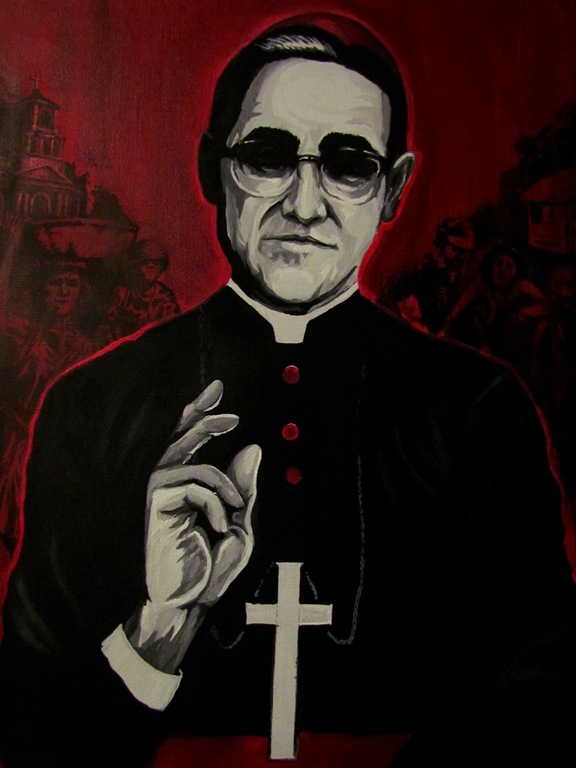A B C D E F G H I J K L M N O P Q R S T U V W X Y Z
Resurrection
|
To rise again.
Oscar Romero, Archbishop of El Salvador, is noted as having said near his imminent assassination: I have frequently been threatened with death. I must say that, as a Christian, I do not believe in death but in resurrection. If they kill me, I shall rise in the Salvadoran people. I am not boasting; I say it with the greatest humility. As a pastor I am bound by divine command to give my life for those whom I love, and that includes all Salvadorans, even those who are going to kill me. If they manage to carry out their threats, I shall be offering my blood for the redemption and resurrection of El Salvador. We see in Romero's sentiments a vision of resurrection broader than that of the mere individual from the grave, that is the indomitable spirit of resistance that rises again and again in people throughout history who are under the thumb of oppression. Similarly, Paul Fiddes writes in Participating in God:
In his vision of the valley of dry bones, the prophet Ezekiel is addressing a nation at the depths of depression. They feel just like a heap of dried-up bones lying on the open ground, bleaching white in the heat of the midday sun. And then Yahweh speaks his promise; he will come like the wind, he will give them life so that they will stand on their feet once more, not as a heap of broken human wreckage, but a great army, ready for action. This is not a picture of resurrection of the individual beyond death, but the revival of a whole nation within history. For people throughout history, resurrection has stood as a symbol of hope that in their struggles death does not have the last word.
|
Image of Oscar Romero. Acrylic on Canvas by B2rian Lopez-Santos
|
Myers, Ched. “Easter Faith and Empire: Recovering the Prophetic Tradition on the Emmaus Road.” In Getting on Message: Challenging the Christian Right from the Heart of the Gospel, edited by Peter Laarman, 51–67. Boston: Beacon Press, 2006.
Sobrino, Jon. The Principle of Mercy: Taking the Crucified People from the Cross. Orbis Books, September, 1994. Print.
The essays in this collection bear on one of the most pressing signs of the times: the existence of a "crucified people," the poor and oppressed of our world, whose suffering presents Christian faith with an urgent demand—that we "take them down from the cross." Writing from the Salvadoran context, Sobrino presents a "theology of mercy," reflecting on the principles of mercy and solidarity as the mode of Christian witness and discipleship in a world of conflict and suffering. In a personal introduction that sets the tone, Sobrino describes the evolution of his own thinking under the impact of the Salvadoran reality. Part One focuses on the essential character of mercy, and on the importance of shaping the mission of the church and the task of theology. Part Two analyzes the crucified reality of the Third World with specific reflections on salvation, forgiveness, and the grace of being forgiven. Part Three presents two manifestations of mercy: the reality of priesthood and solidarity. Finally, in a moving Afterword, Sobrino focuses on his martyred fellow Jesuits of the Central American University, a group who paid the ultimate price of mercy.
Sobrino, Jon. The Principle of Mercy: Taking the Crucified People from the Cross. Orbis Books, September, 1994. Print.
The essays in this collection bear on one of the most pressing signs of the times: the existence of a "crucified people," the poor and oppressed of our world, whose suffering presents Christian faith with an urgent demand—that we "take them down from the cross." Writing from the Salvadoran context, Sobrino presents a "theology of mercy," reflecting on the principles of mercy and solidarity as the mode of Christian witness and discipleship in a world of conflict and suffering. In a personal introduction that sets the tone, Sobrino describes the evolution of his own thinking under the impact of the Salvadoran reality. Part One focuses on the essential character of mercy, and on the importance of shaping the mission of the church and the task of theology. Part Two analyzes the crucified reality of the Third World with specific reflections on salvation, forgiveness, and the grace of being forgiven. Part Three presents two manifestations of mercy: the reality of priesthood and solidarity. Finally, in a moving Afterword, Sobrino focuses on his martyred fellow Jesuits of the Central American University, a group who paid the ultimate price of mercy.

